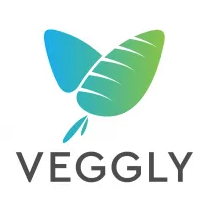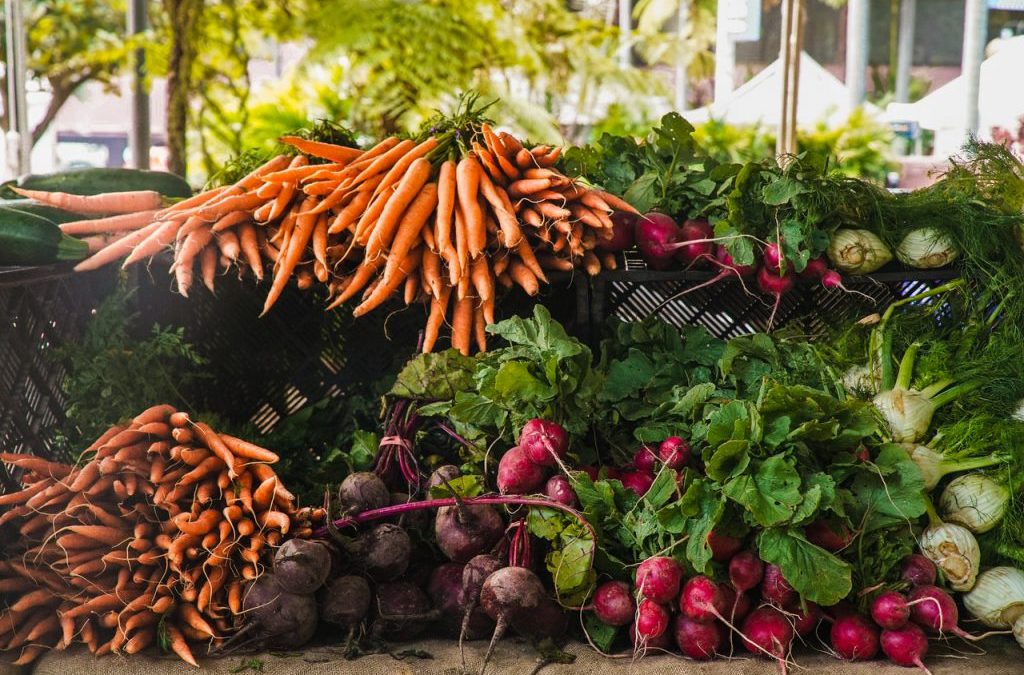Health is wealth! While that’s an old say, it’s as true as it’s ever been. And the importance of vegetables for our health is proven by many researches. Read on to learn more. And when you’re convinced, check out how to properly prepare vegetables and some of our vegan recipes.
A lot of Vegans and vegetarians adopt their diet/ lifestyle for different reasons: animal welfare, environment and food security for the world population being the most common reasons.
However, the importance of vegetables and eating a healthy plant-based diet is also a great factor and one that greatly impacts the life of vegans and vegetarians for the better!
Even if you’re still just trying to reduce your meat consumption in favor of more vegetables, this article provides really interesting insights.
Staying healthy is essential to functioning well in life. Health is the root of one’s existence. Life is full of challenges and struggles. One requires being mentally and psychologically stable.
Vegetables are necessary for human health due to their vitamin A, minerals, and dietary fiber content. Vitamins A, C, and E play a vital role in human health. The nutrient and non-nutrient molecules in vegetables reduce the risk of chronic disease, diabetes, cancer, obesity, and hyperactivity.
Importance of Vegetables in Mental Health:
Researchers are merely starting to consider the correlation between what we tend to eat and our mood. However, we already know there is a strong correlation. A large study conducted in Spain recently found that people with a diet rich in vegetables have lower depression rates. Experiencing a mental health problem can also be related to an unbalanced diet.
There is a link between specific diets and their impact on the psychological state. Low nutrition diets play a role in worsening mood disorders such as anxiety and depression, while foods rich in vegetables improve depression and anxiety symptoms.
With attention deficit hyperactivity disorder (ADHD), for example, we can see an increase in sugar sweetening in the diet that seems to spill over into stress. Conversely, the intake of many vegetables and fruits appear to protect against these conditions. ADD is a behavior disorder.
The most common treatments for ADD include medical treatment and medications. ADD treatment is not just taking medicine. Many effective therapies can help children with attention deficit hyperactivity disorder in order to improve their ability to concentrate and control impulsive behavior and discomfort. Nutritious meals, exercise, and learning new coping skills are all part of a balanced treatment.
Proper nutrition will help reduce symptoms of the syndrome: Studies show that what you eat and when you eat makes a difference in the management of attention deficit disorder.
Main vegetables nutrients and where to get them:
Protein:
Everything in life needs protein to live, and vegetables are generally good sources of protein. Vegetables rich in protein are sprouts, peas, spinach, sweet corn, broccoli, mushrooms etc. The body uses protein-rich legumes to make neurochemicals (the chemicals released by brain cells) to communicate. It will stop the glucose spikes that increase protein and impulsivity.
Zinc and iron:
Zinc regulates the organic compound dopamine and can make stimulant drugs more practical by increasing the brain’s response to dopamine. The deficiency of these minerals is related to the necessary cognitive process. Iron is also needed to make dopamine. Lack of iron is similar to psychological deficits and stops ADHD. Zinc and magnesium are used to form neurochemicals, related to attention and concentration, and is a powerful effect in the brain. These minerals found in vegetables such as hemp seeds, peas, spinach, lima beans, etc.
Vitamins and minerals:
Vegetables that are high in vitamin C include peppers, broccoli, tomatoes, kale, and pears. The current daily value for vitamin C is 90 mg.
- Broccoli is a source of fibre, calcium, and iron.
- Cabbage is rich in vitamin C, which makes it an excellent immune booster.
- Cauliflower is rich in vitamin C and folic acid.
- Radishes are rich in potassium, folic acid, antioxidants, and sulfur compounds that aid digestion.
- Lettuce is an excellent source of B vitamins, folic acid, and manganese.
- Spinach is rich in iron, folic acid, and vitamin K, C, and other vital nutrients.

The 5 reasons to sumarize the importance of vegetables:
1 – Vegetables are a perfect complement: Plants are low in fat and high in protein, which makes them an ideal addition.
2 – Plants are rich in nutrients: Nutrient-rich vegetables contain large amounts of vitamins, minerals, and anticancer compounds.
3 – Importance of vegetables in a diet: Eating vegetables to lose weight cannot be ignored either. They are low in calories, contain vitamins and minerals, and fill you with fibre and water.
4 – Mental health benefits: Eating vegetables can improve your mental health and even make you happier. Vegetable intake is associated with greater happiness, well-being, and life satisfaction. Vegetables can also help keep the brain in shape for longer. According to a 2017 study published in Frontiers and Aging neuroscience, the research that led the study states that increasing vegetable intake reduces cognitive decline.
5 – Variety of vegetables throughout the year: Vegetables are a delight of nature and are easy find and prepare. You can prepare some crunchy, some sprinkled, some peeled, and still others unchanged by adding a new vegetable to a different meal every day. Add colour to salads with baby carrots, chopped red cabbage, or green beans. A variety of vegetables includes seasonal vegetables throughout the year.
Conclusion: The importance of vegetables is something we sometimes take for granted but they are a real natural medicine! Vegetables are considered essential for a balanced diet because they provide vitamins, minerals, and dietary fibre. In the daily diet, vegetables are associated with mental health. It would help if you ate a wide variety of vegetables to ensure a healthy lifestyle and get all the health benefits.
Go Vegan! 😉
Don’t miss the Veggly Blog
So there you have it! This is a great reason to include more vegetables in your diet! 🙂
Subscribe to our blog and stay up to date with all of our announcements, other news stories, blog posts, and recipes.
Read some of our success stories and messages from our users who found love from their Veg-Matches – all on this page here.
Please follow Veggly across our social channels:






Trackbacks/Pingbacks